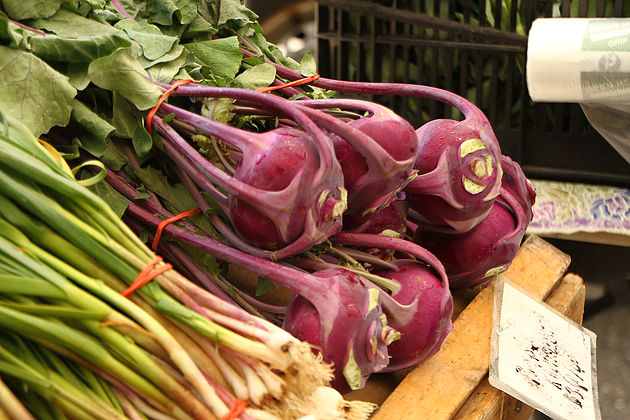
A new program is improving access to fresh, healthy foods for thousands of families around Massachusetts, and increasing sales for local farmers. The more than 440,000 families in Massachusetts who rely on the Supplemental Nutrition Assistance Program (SNAP) are receiving mailings this month to inform them about the Healthy Incentives Program (HIP) (www.mass.gov/hip), which seeks to increase food security for SNAP households, support the local agricultural economy, and improve health outcomes for participating families.
HIP is a project of the Massachusetts Department of Transitional Assistance, in partnership with the Department of Agricultural Resources and the Department of Public Health, along with a coalition of more than 40 organizations including Community Involved in Sustaining Agriculture (CISA), Project Bread, the Food Bank of Western Massachusetts, the Federation of Massachusetts Farmers Markets, and the University of Massachusetts’ Stockbridge School of Agriculture.
When SNAP recipients use their EBT cards to purchase fruits and vegetables at participating farmers markets, farm stands, mobile markets, and community supported agriculture (CSA) programs, HIP automatically credits their account with a one-to-one match of up to $80 per month, depending upon household size. Earned HIP incentives can then be used towards any future SNAP purchase.
Only one-quarter of Massachusetts adults eat the federally recommended five servings of fruits and vegetables per day, and the gap is significantly higher in low-income households. Disparities in access by race and ethnicity exacerbate the problem further in many communities. This nutritional deficit contributes to increases in obesity and its related chronic preventable diseases, including diabetes and heart disease.
Massachusetts has long been a leader in direct-to-consumer sales from farms, with the number of these retailers growing dramatically in recent years. Shopping at these outlets is often seen as a luxury for the one in nine Massachusetts residents who rely on SNAP, though, since it is already a challenge to stretch their limited monthly food budget in a state with some of the highest food prices in the nation. Dozens of local programs around the state have offered similar matching programs in recent years – Boston Bounty Bucks matched more than $200,000 in purchases in 2015, and SNAP & Save, a program of CISA, provided more than $40,000 in matching purchases at 21 farmers markets in the Pioneer Valley – but HIP is the first statewide program of its kind in the U.S. While other programs relied on coupons or tokens for SNAP recipients to make their purchases, HIP is also the first to apply the customer’s incentive directly to their EBT card, thereby eliminating the stigma often felt by low-income consumers when their transactions have to be handled differently than others, and improving efficiency in the management of the benefit.
“Now that I know what HIP is, I’m making sure to buy fruits and vegetables first each month,” said Marie Loranger of Monson, who was one of the first people to receive HIP incentives when she purchased vegetables in April. “My doctor has told me I need to eat more healthy fruits and vegetables, and my response has been that it’s too expensive. Now I have no excuse! I’m buying more vegetables and freezing them so I can use them all year. I can’t wait for strawberries and blueberries and corn!” HIP incentives can also be used to purchase vegetable plants, which Loranger has done as well, and she is looking forward to harvesting her own healthy food later in the summer.
Massachusetts farmers are beneficiaries of HIP as well, seeing increased sales and attracting new customers. Those sales benefit the local economy: according to CISA, if every household in Massachusetts spent $20 more on local food and $20 less on non-local food each month, $334,055,520 more local income would be generated per year and 4,272 local jobs would be created in the state. Increased farm viability thanks to increased sales helps farmers steward more than 500,000 acres of farmland, protecting soil, air, and water resources.
“HIP has diversified and increased participation in our CSA, providing huge incentives, and giving people the push to sign up,” said Bethany Bellingham of Farmer Dave's CSA in Dracut, MA, where SNAP recipients can sign up for a farmshare and receive HIP benefits along with their weekly share of fresh vegetables. “Now they don't have to choose between shopping at a farm or going to the grocery store. They have more options to purchase healthy, local food.”
The launch of HIP follows the success of the Healthy Incentives Pilot, a program run by DTA in Hampden County in 2011-12, which provided SNAP recipients an incentive of 30 cents per dollar spent on fruits and vegetables. During the course of that program participants consumed 26% more fruits and vegetables, demonstrating that such incentives can have a significant impact on healthy eating.
As a result of that success, USDA awarded Massachusetts a grant of $3.4 million to launch HIP, the only statewide program of its kind in the nation. Additional financial contributions to the program have come from the City of Boston, Project Bread, the John Merck Fund, and others, and efforts to raise other funds to meet the required match are ongoing.
The success of HIP was identified as a priority in the 2015 Massachusetts Local Food Action Plan (mafoodsystem.org/plan/), a comprehensive food system plan developed for the State. The Massachusetts Food System Collaborative (mafoodsystem.org) is a network of Massachusetts food system stakeholder organizations, working to promote, monitor, and facilitate implementation of the Plan.